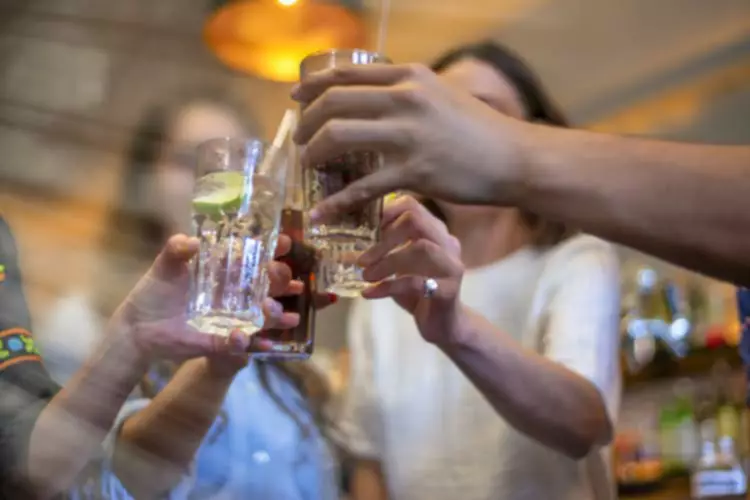News & Notice
공지사항
| 제목 | Marijuana Cannabis Abuse, Detox, Withdrawal and Treatment | ||
| 작성일 | 2022-02-28 | 작성자 | 변윤경 |
Content
Although popular, dabbing can also be very dangerous because it requires that users prepare the extracts using lighter fluid, which can cause accidents and physical injury. THC affects certain parts of the brain, leading to effects like altered senses, mood swings, impaired memory and body movement, hallucinations, and more. As more and more states legalize both the medicinal and recreational use of marijuana, concerns about the possibility of addiction and overdose continue to rise as well. Another way of ingesting the drug is to mix the plant’s leaves, flowers, stems or seeds into food or to brew the leaves as a tea.
While many people are able to use it without becoming addicted or abusing it, it’s not a benign substance. Even though you may not be able to prevent marijuana abuse and addiction, there are things you can do to reduce the risk. Accurate diagnosis of mental health disorders and appropriate treatment, including medication, may help to reduce attempts to self-medicate with marijuana. Many studies have been done on the effects of marijuana abuse during pregnancy, and results are conflicting, possibly because of other substances used and/or abused during pregnancy, including tobacco.
Marijuana Addiction Treatment
In fact, marijuana intoxication increases the risk of car crash mortality and morbidity by 1.5 to 3-fold. The higher the THC concentration, the bigger the risk for collision. That means individuals who are addicted to marijuana are at a high risk of car accidents and other problems. Marijuana https://ecosoberhouse.com/ use can have adverse effects on cardiovascular and pulmonary health. Detox programs may be helpful for those who may struggle to stop using marijuana on their own, who have other mental health conditions or co-occurring disorders, or who do not have a stable and supportive environment.
High-potency forms of the drug can expose new users to increased concentrations of THC and greater risk of experiencing adverse or unpredictable reactions. For frequent users, higher potency can increase the risk of marijuana addiction. Today, marijuana is classified by the federal government as a Schedule I substance, which means the drug presents a high risk for abuse and is deemed to have no medicinal uses. However, several states have legalized marijuana for adult recreational use, and 23 states as well as the District of Columbia allow use of medical marijuana to treat certain medical conditions. The main objective of behavioral therapies is to teach patients healthy coping mechanisms, help them build self-esteem, and understand triggers that encourage marijuana use. With regular therapy, patients learn to overcome their addiction and prevent relapse.
Approaching a Loved One Who Is Addicted to Weed
These are people who have tried to quit on their own many times but couldn’t do it alone. Due to the constantly evolving social landscape surrounding Marijuana, it can be difficult to determine if you have a problem and even more challenging to stop using. In the same way that alcohol is normalized, so too more recently and widespread is Marijuana, thus, the notion of quitting is nuanced.
When a person uses cannabis, the cannabinoid receptors in the brain become overactive and create a “high” feeling. When smoked, the THC in marijuana passes rapidly from the lungs into the bloodstream, which then carries the substance to the brain and other organs throughout the body. THC is absorbed significantly slower is ingested in food or drink form. Any product that contained a habit-forming substance (such as THC found in marijuana) was labeled and became heavily regulated. Products containing habit-forming substances such as cannabis were often labeled as poisons and, in most cases, were available only with a physician’s prescription. The cost of a sober living program will vary based on the program the client chooses.
What are some negative consequences of cannabis use disorder?
When a person uses cannabis, the THC affects the cannabinoid receptors in the brain and creates a “high” effect. While marijuana doesn’t always result in physical addiction, people can become addicted to the way it makes them feel and use it to cope with uncomfortable feelings or stressful situations. As cannabis becomes legalized in more states, people are starting to use the drug more, increasing the rate of substance use disorders. One of the more challenging things about marijuana addiction treatment is the common misconception that cannabis isn’t harmful or addicting.
What to do when high alone at night?
You can go for a night stroll in your neighborhood and see sights you've likely never known to exist. Even something as simple as sitting on a park bench and watching people walk by can be tranquil and peaceful. If you live near the ocean, take time to listen to the waves crash into the shore.
This is especially true if you have been using marijuana heavily for several years or have tried to quit before but relapsed. A detox center can provide a safe period of medical observation to help you proceed through the withdrawal process safely and comfortably before reaching a state of sobriety. Marijuana abuse and addiction can cause a variety of problems that affect the overall well-being of an individual. It may have a wide range of physical and mental effects and doesn’t always affect everyone in the same way. According to SAMHSA’s 2016 National Survey on Drug Use and Health, 36.7 million people reported that they used marijuana over the past year. Deciding to receive treatment for Marijuana addiction can be tough especially when some feel it is unnecessary.
Long-term cannabis use can be detrimental to your well-being, so it’s essential to seek treatment when you determine you have an addiction. Addiction is a chronic illness that will require hypervigilance to sustain your recovery. The final step of the official marijuana addiction treatment process is after care planning.
- Eric Patterson, MSCP, NCC, LPC, is a professional counselor who has been working for over a decade to help children, adolescents, and adults in western Pennsylvania reach their goals and improve their well-being.
- According to SAMHSA, about 1 in 10 people who engage in marijuana use will become addicted, when an individual starts before 18 years old, the addiction rate increases to 1 in 6.
- Addiction is a chronic illness that will require hypervigilance to sustain your recovery.
- Match with a licensed therapist and get convenient care from anywhere.
Behavioral disorders, such as gambling or porn addictions, are great examples of the power of mental dependencies. Those who are unable to control their use and intake, however, do meet the diagnostic marijuana addiction qualifications of a substance use disorder or addiction. You might be encouraged to join a marijuana addiction support group, in order to meet others on the road to recovery as well.
Marijuana is the most common illicit drug in Canada and is used to manage symptoms of some health conditions. However, as with many drugs, regular use of marijuana can result in dependence. It can be hard when you’re living with marijuana abuse or watching someone you care about deal with it. They can help identify treatment options that are appropriate for your situation and provide resources for family and friends.

Marijuana also known as weed, pot, grass, bud, herb, ganja, and mary jane, among other terms—refers to the dried leaves, flowers, stems, and seeds of the plant Cannabis Sativa. This plant contains the psychoactive (mind-altering) chemical delta-9-tetrahydrocannabinol (THC) as well as other potentially harmful compounds. Cannabis plant material can also be concentrated in a black liquid called hash oil or a sticky resin called hashish. Match with a licensed therapist and get convenient care from anywhere. Other support groups exist, such as the SMART Recovery™ program, for those looking for options outside the traditional 12-step model. Have a confidential, completely free conversation with a treatment provider about your financial options.
